What Is Dungeons & Dragons?
Dungeons & Dragons, often referred to as D&D, is a beloved tabletop role-playing game that invites players to embark on epic adventures in imaginative worlds. At its core, D&D is a collaborative storytelling game where players create characters, make decisions, and face challenges in a fantasy setting. Whether you’re battling dragons, solving mysteries, or forging alliances, D&D offers endless opportunities for creativity and adventure. It’s a game that combines strategy, imagination, and social interaction, making it a unique and captivating experience for players of all ages. So, if you’re ready to explore new realms and weave your own tales of heroism, D&D is the perfect game for you. Let’s dive into the exciting world of Dungeons & Dragons!
Getting Started: Essential Supplies for D&D
To embark on your Dungeons & Dragons adventure, you’ll need a few essential supplies. Here’s a quick rundown of what you’ll require:
- Dice Sets: D&D relies on various polyhedral dice, especially the iconic 20-sided die (d20). A standard set includes seven different dice, and having multiple sets can be handy.
- Character Sheets: Character sheets are where you record your character’s details, abilities, and stats. You can find printable sheets online or use digital character sheet apps.
- Rulebooks: The core rulebooks, including the Player’s Handbook, Dungeon Master’s Guide, and Monster Manual, are crucial references. Consider starting with the Player’s Handbook.
- Writing Materials: Have pens, pencils, and erasers on hand for character sheet updates and notes.
- Miniatures or Tokens: These help visualize characters and creatures on the game board. You can use miniatures or improvised tokens like coins and buttons.
- Imagination: While not a physical supply, a vivid imagination is the most important asset in D&D. Be ready to dive into a world of fantasy and adventure with your fellow players.
With these essential supplies, you’ll be well-prepared to begin your journey in the realm of Dungeons & Dragons. Now, let’s create your character and explore the game’s core concepts!
Creating Your First Character
One of the most exciting aspects of Dungeons & Dragons is creating your character. Your character is your alter ego in the game, and they will shape the story you experience. Here’s a step-by-step guide to creating your first character:
- Choose a Race: D&D offers a variety of fantasy races, from humans and elves to dwarves and tieflings. Pick one that appeals to you, as it will influence your character’s abilities and appearance.
- Select a Class: Classes define your character’s skills and abilities. Consider being a mighty warrior as a fighter, a spellcaster as a wizard, or a stealthy rogue. There are numerous options to suit different playstyles.
- Background: Your character’s background provides a history and personality. It might be an acolyte, a criminal, or a sage. Backgrounds offer role-playing opportunities and additional skills.
- Alignment: Determine your character’s moral and ethical stance. Alignments include options like lawful good, chaotic evil, and everything in between.
- Ability Scores: Roll dice or use a point-buy system to assign ability scores to attributes like strength, dexterity, and intelligence. These scores affect your character’s capabilities.
- Skills and Proficiencies: Based on your race, class, and background, you’ll gain specific skills and proficiencies. These reflect what your character is good at.
- Name and Appearance: Give your character a name and describe their appearance. This is where you can infuse personality and creativity.
- Backstory: Create a backstory that explains your character’s past, motivations, and goals. This will guide your role-playing throughout the game.
- Equipment: Choose starting equipment for your character. This could be weapons, armor, and other adventuring gear.
- Alignment with the Party: Discuss with your fellow players to ensure your character fits well within the party and the adventure’s context.
With your character sheet completed, you’re ready to dive into the world of Dungeons & Dragons. Your unique hero is now prepared to face the challenges and quests that await. Get ready for an adventure like no other!
Understanding the Core Rulebooks
In Dungeons & Dragons, the core rulebooks serve as your guide to the game’s mechanics and lore. Understanding these rulebooks is essential for a successful D&D experience. Here’s a brief overview of the primary core rulebooks:
- Player’s Handbook (PHB):
- The PHB is the player’s go-to manual. It contains character creation rules, spell lists, and detailed explanations of game mechanics.
- It’s an indispensable resource for understanding how to build and play your character effectively.
- Dungeon Master’s Guide (DMG):
- The DMG is essential for Dungeon Masters (DMs). It provides guidance on world-building, creating adventures, and managing game sessions.
- DMs use it to craft immersive and engaging stories, as well as to understand the rules behind the scenes.
- Monster Manual (MM):
- The MM is a compendium of creatures, monsters, and adversaries your party will encounter.
- It offers statistics, abilities, and descriptions of various creatures, helping DMs create challenging encounters.
- Supplementary Rulebooks:
- Beyond the core rulebooks, there are supplementary books, like Xanathar’s Guide to Everything or Volo’s Guide to Monsters, which provide additional character options, expanded lore, and campaign ideas.
Each of these rulebooks is a valuable resource, and the combination of the PHB, DMG, and MM forms the core foundation of D&D gameplay. Whether you’re a player or a Dungeon Master, these rulebooks will be your trusted companions as you navigate the rich and diverse world of Dungeons & Dragons.
Assembling a Party
In Dungeons & Dragons, you rarely venture into the unknown alone. Forming a party of adventurers is a fundamental aspect of the game. Here’s how to assemble a diverse and effective party:
- Diverse Roles: A well-rounded party typically includes characters with various roles. These roles may include a tank (frontline fighter), a spellcaster (mage), a healer (support), and a skillful rogue (thief or scout). Ensure your party can handle different challenges.
- Communication: Discuss character concepts with your fellow players to avoid overlap and ensure party synergy. It’s essential that everyone has a distinct role and purpose within the group.
- Balanced Abilities: Consider the abilities and skills each character brings to the table. Balance is key. You’ll need characters who can handle combat, solve puzzles, and navigate social interactions.
- Character Chemistry: Role-playing is a major part of D&D. Ensure your characters have reasons to work together and complementary personalities. This can enhance the storytelling experience.
- Shared Goals: Create a shared goal or purpose for the party. Whether it’s a quest, a common enemy, or a collective ambition, a unifying objective helps keep the party cohesive.
- Backstories: Integrate your character’s backstories with those of other party members. This can lead to more engaging and interconnected narratives.
- Party Dynamics: Pay attention to party dynamics during gameplay. Respect each other’s roles and contributions, and communicate openly to resolve conflicts or disagreements.
By following these guidelines, you’ll assemble a well-balanced and harmonious party of adventurers. Together, you’ll be ready to tackle the challenges, mysteries, and dangers that await you in the world of Dungeons & Dragons.
The Dungeon Master: Your Guide to the World of Dungeons & Dragons
In the realm of Dungeons & Dragons, the Dungeon Master (DM) is the storyteller, world-builder, and referee who guides players through their adventures. Here’s what you need to know about the crucial role of the DM:
- Storyteller: The DM is responsible for creating and narrating the game world. They describe environments, characters, and events, bringing the game to life with vivid storytelling.
- World-Builder: The DM designs the setting, from cities and forests to dungeons and mountains. They craft the history, politics, and cultures of the world, providing depth and realism to the campaign.
- Game Master: The DM enforces the rules, ensuring fair and balanced gameplay. They manage challenges, encounters, and the consequences of players’ decisions.
- Non-Player Characters (NPCs): DMs play the roles of NPCs, breathing life into merchants, monsters, and quest-givers. They interact with players in character, adding depth to the story.
- Adventure Creator: DMs craft the plot, quests, and overarching narrative of the campaign. They prepare adventures that challenge and engage the players, fostering a sense of immersion.
- Rule Interpreter: The DM interprets and applies the rules, adjudicating disputes and making on-the-spot decisions when necessary. Their role is to ensure a fun and fair gaming experience.
- Improviser: Flexibility is a key DM trait. They must be prepared to adapt to players’ choices and actions, allowing for a dynamic and evolving story.
- World Secrets: DMs know the hidden secrets and mysteries of the world. They maintain an aura of suspense and intrigue, revealing information at the right moments.
- Problem Solver: When unexpected situations arise, the DM is a creative problem-solver, ensuring the game continues smoothly.
- Narrative Weaver: The DM weaves together player backstories, character arcs, and overarching plotlines into a cohesive narrative tapestry.
A skilled Dungeon Master can turn a D&D campaign into an unforgettable adventure. They create a vibrant world for players to explore, challenge them with puzzles and foes, and inspire unforgettable stories. If you’re considering taking on the role of DM or collaborating with one, you’re in for a thrilling and immersive experience in the world of Dungeons & Dragons.
Beginning Your First Adventure in Dungeons & Dragons
With your characters created, the party assembled, and a Dungeon Master ready to guide you, it’s time to embark on your first adventure in Dungeons & Dragons. Here’s how to get started:
- Setting the Scene: Your DM will describe the world and the current situation. Listen carefully, as their descriptions will set the stage for your adventure.
- Character Introduction: Each player introduces their character to the group, sharing their name, race, class, and a bit of their background. This is a great way to establish your character’s presence in the story.
- Objective: The DM will present your party with a quest or a goal. It might be a rescue mission, a treasure hunt, or a battle against a menacing foe. Understand your objective and ask questions if you’re unsure.
- Role-Playing: As you progress through the adventure, you’ll have opportunities to interact with NPCs, make decisions, and engage in role-playing. Embrace your character’s personality and make choices that reflect their motivations.
- Exploration: You’ll explore a wide range of environments, from dungeons to forests and bustling cities. Interact with your surroundings, search for clues, and uncover hidden secrets.
- Combat and Challenges: When you encounter enemies or face challenges, the DM will guide you through combat mechanics and skill checks. Pay attention to the rules and use your character’s abilities strategically.
- Teamwork: D&D is a cooperative game. Work together with your fellow adventurers, leveraging each character’s strengths to overcome obstacles and foes.
- Problem-Solving: Expect puzzles and dilemmas that require creative solutions. Think outside the box and collaborate with your party to overcome these challenges.
- Story Progression: As you make choices and complete objectives, the story will progress. The DM will reveal more details and expand the narrative, presenting new challenges and mysteries.
- Enjoy the Journey: Most importantly, enjoy the journey. D&D is about storytelling, creativity, and having fun. Embrace the unexpected and relish the memorable moments that arise during your adventure.
Your first adventure in Dungeons & Dragons is the start of an epic journey filled with excitement, challenges, and camaraderie. Embrace the world and the story, and let your imagination run wild as you create unforgettable memories with your fellow players.
Essential Tips for New Players in Dungeons & Dragons
Entering the world of Dungeons & Dragons as a new player can be both thrilling and overwhelming. To make your journey smoother and more enjoyable, here are some essential tips:
- Read the Basic Rules: Familiarize yourself with the basic rules in the Player’s Handbook. You don’t need to know everything, but a general understanding will help you get started.
- Learn Your Character: Understand your character’s abilities, spells, and skills. This knowledge will empower you to make informed decisions during the game.
- Collaborate with Your Party: D&D is a team game. Communicate with your fellow players, share ideas, and work together to overcome challenges.
- Embrace Role-Playing: Don’t be afraid to get into character. Role-playing adds depth to the story and makes the game more immersive and enjoyable.
- Listen to Your Dungeon Master: Your DM is your guide. Please pay attention to their descriptions and follow their cues. They’re there to facilitate your adventure.
- Ask Questions: If you’re unsure about a rule, your character’s abilities, or the story, don’t hesitate to ask questions. D&D players are usually more than willing to help.
- Be Creative: D&D is all about creativity. Think outside the box when solving problems and approaching challenges. Your imagination is your most powerful tool.
- Take Notes: Keep track of important information, clues, and character interactions. Good notes can help you make informed decisions and contribute to the story.
- Respect Table Etiquette: Be respectful to your fellow players, give everyone a chance to shine, and maintain a positive and inclusive gaming environment.
- Learn from Mistakes: D&D is about trial and error. Don’t be discouraged by mistakes; they are opportunities for growth and character development.
- Stay In Character: Avoid metagaming, which means using out-of-character knowledge in the game. Make decisions based on what your character knows, not what you know.
- Have Fun: Most importantly, have fun. D&D is a game of storytelling and adventure. Enjoy the journey and the camaraderie with your fellow players.
Remember that D&D is a flexible game, and every group may play a little differently. As you gain experience, you’ll develop your own style and preferences. Embrace the uniqueness of your adventures and relish the memorable stories that you and your party create together.
Joining a Dungeons & Dragons Community: Finding Your Adventuring Party
Dungeons & Dragons is not just a game; it’s a vibrant and diverse community of enthusiasts who share a passion for storytelling and adventure. Here’s how to connect with this community and find your adventuring party:
- Local Game Stores: Many local game stores host D&D events, including Adventurers League. Visit your nearest store and ask about D&D nights or events. It’s a great way to meet fellow players and potential DMs.
- Online Forums: Platforms like Reddit, Discord, and various D&D-specific forums are excellent places to find like-minded individuals. Join discussions, ask for advice, and look for group recruitment posts.
- Social Media: D&D has a significant presence on social media platforms like Twitter, Instagram, and Facebook. Follow D&D-related accounts, join D&D groups, and connect with fellow players and DMs.
- Meetup Groups: Websites like Meetup.com often have D&D groups or board game clubs. Join local D&D meetups to find players and DMs in your area.
- Virtual Tabletop Platforms: Consider playing D&D online through platforms like Roll20, Fantasy Grounds, or D&D Beyond. These platforms connect players from around the world, making it easy to find online games.
- D&D Conventions: Attend D&D conventions like Gen Con, PAX, or local gaming conventions. These events offer the chance to play in organized games and meet other D&D enthusiasts.
- Friendly Local Game Stores (FLGS): FLGS often host D&D nights or may have bulletin boards where players look for groups. Stop by and see if there are any D&D-related notices.
- Community Events: Keep an eye out for D&D-related events in your community, such as charity games, workshops, or pop-up gaming events. These can be great places to meet new players.
- Online Play-by-Post Games: Websites and forums dedicated to play-by-post D&D games allow you to join asynchronous adventures, making it easier to fit games into your schedule.
- Start Your Own Group: If you can’t find a group that suits your needs, consider starting your own. You might be surprised at how many people are looking for a game.
When you join a D&D community, you not only find a group of adventurers to share epic tales with but also make new friends who share your passion for storytelling, strategy, and imagination. Whether you’re a new player or a seasoned veteran, the D&D community welcomes all who seek adventure.
In conclusion, your journey into the captivating world of Dungeons & Dragons is filled with endless possibilities, adventure, and camaraderie. This SEO-optimized guide has provided you with essential insights into getting started with D&D, including understanding the game, creating your character, mastering the core rulebooks, assembling a party, and beginning your first adventure.
As a new player, you’ve learned valuable tips to enhance your D&D experience and connect with the thriving D&D community. Whether you’re embarking on your first campaign or diving into an epic quest, remember that D&D is all about imagination, storytelling, and, above all, having fun.
The bonds you form with your fellow players and the memories you create in the world of Dungeons & Dragons will stay with you for a lifetime. So, equip your characters, prepare for adventure, and set forth into the realms of magic, mystery, and heroism. Your epic journey awaits!

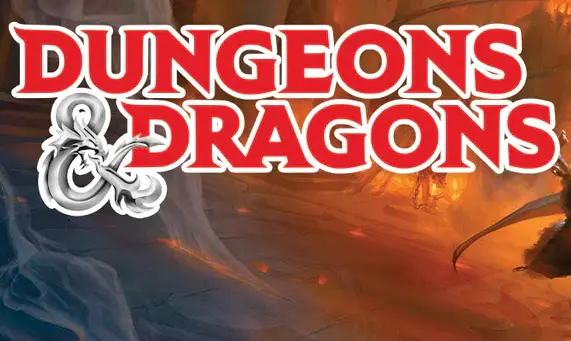


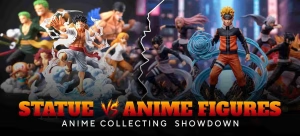
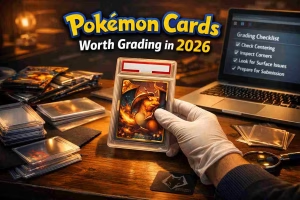
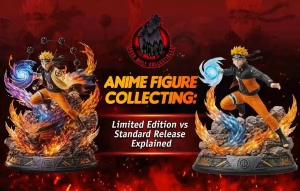
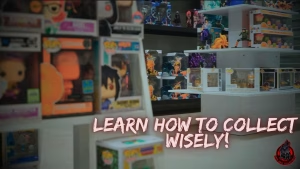

Add comment